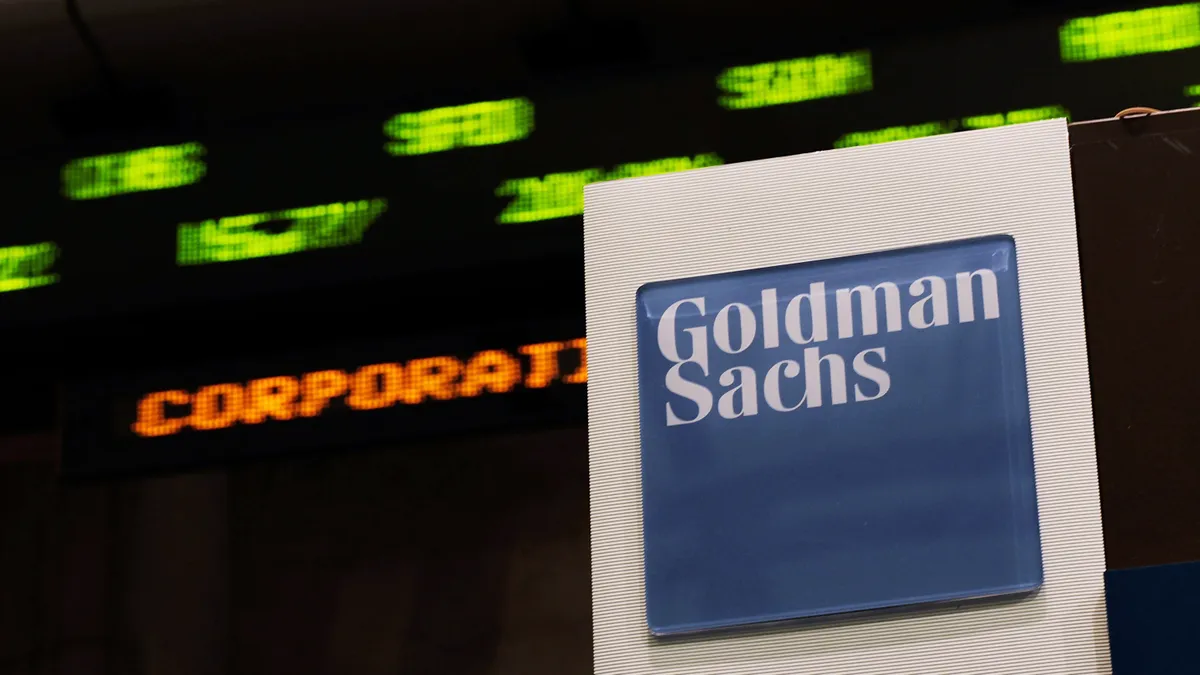Dive Brief:
- Goldman Sachs reversed course Friday, saying it plans to support a shareholder proposal requiring the company to prepare a report on how mandatory arbitration affects staff and the workplace. The bank in April rejected the proposal despite 49% backing.
- The bank has argued arbitration gives speedier resolution to claims. However, detractors assert it provides a way for companies to give cover to damaging allegations such as sexual harassment and avoid costly lawsuits. A 2015 study found that arbitration overwhelmingly favors employers and can cover up misconduct from repeat offenders.
- A group of plaintiffs sued Goldman Sachs in 2010, claiming it denied women equal pay and promotions they had earned, and made biased decisions regarding compensation. The bank has denied the allegations.
Dive Insight:
Goldman is one of the banking industry’s holdouts on arbitration. Wells Fargo last year ended its policy of mandatory arbitration for employees claiming sexual harassment.
"In consideration of the feedback we have received, as well as the results of the recent shareholder vote at our annual meeting, we believe it is appropriate to undertake a review to assess this issue comprehensively," a Goldman spokesperson told Bloomberg in a statement Friday.
The bank has tried to send the plaintiffs in the 2010 case into arbitration, but the women said they expect a trial in early 2022. They asked Magistrate Judge Robert Lehrburger in November to force the bank to search again for — and turn over to the court — any internal documents with terms such as "babe," "bimbo" or worse before any current and former bank executives testify under oath.
Goldman responded by filing a letter with the U.S. District Court for the Southern District of New York, indicating it had already conducted "extensive searches" and turned over emails, adding that a new search would take about 17 months and be costly, Bloomberg reported.
A previous judge ruled the plaintiffs couldn't allege disparate treatment as part of their class-action case. But Lehrburger said such internal documents could be relevant if they showed bias among executives in charge of hiring and performance evaluation policies.
The plaintiffs have sought depositions from former Goldman CEO Lloyd Blankfein, former President Gary Cohn and current CEO David Solomon.
Robert Giuffra, a lawyer for the bank, told Lehrburger the executives shouldn't be forced to testify, saying they lacked unique knowledge of the policies at the root of the case.
Lehrburger countered that "what they knew is important because, as the plaintiffs point out, the buck stops there." He ruled the plaintiffs could question each under oath for 3½ hours apiece, then partially reversed course, saying he would decide after Blankfein and Cohn's depositions whether CEO David Solomon would also need to testify.
Lehrburger had ruled earlier last year that the bank could force more than 1,000 of the women into arbitration.
When Wells ended its mandatory arbitration policy in February 2020, Gretchen Carlson, the former Fox News commentator who co-founded the advocacy group Lift Our Voices, said she hoped the bank’s decision would inspire others to follow suit.
"America is awake and we have a voice," Carlson tweeted Friday in response to Goldman's policy shift.













